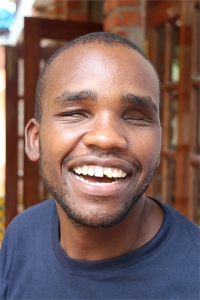 Robert Malunda, Zimbabwe
Robert Malunda, Zimbabwe
Robert was born sighted in the Makokoba township in Bulawayo, Southwest Zimbabwe. He was affected by glaucoma and at the age he became totally blind. Braille textbooks were scarce, so he depended on his sighted classmates for most of his academic needs. In 2011, a friend from the UK sent him a laptop and he began training himself computer use with a voice synthesizer. That opened a gateway to a lot of opportunities, because he could now read books and access information on his own. With the help of a blind friend, he explored orientation and mobility skills. Mastering the use of a white cane, got him out of isolation. In 2015 he joined the kanthari course. Upon return to Zimbabwe he started Gateway to Elation.
Robert trains other blind people in the use of computers as well as daily living, orientation and social interaction skills so that they are able to become independent and are able to integrate themselves in society.
Currently, as in many other places around the world, his work is strongly affected by the Corona crisis. He still finds ways to support the blind in his community. More information about his work can be found at http://gatewaytoelation.org/
Watch Robert's Dream Speech online: here
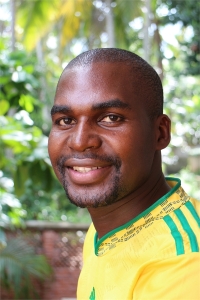 Fanuel Masunda, Zimbabwe
Fanuel Masunda, Zimbabwe
Chivi district in the Southeastern part of Zimbabwe, the region I come from, is slowly becoming a desert due to overgrazing and deforestation. Being an agriculturist, trained in conventional and alternative sustainable agriculture methods, my venture focuses on local environment and communal food issues. If communities are conscious of healthy diets it will translate in a different demand. The project started in 2016 and has now over 200 beneficiaries. We started with a model organic farm that demonstrates the correlation between environmental protection and organic agriculture to benefit the environment as well as food security. The beneficiaries learn from the epicenter village and the teachings have a ripple effect spreading into the ward, and district.
Watch the Dream Speech online: here
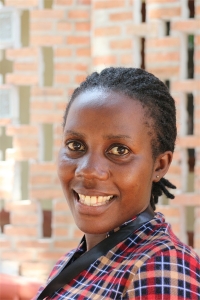 Jacquiline Namutebi, Uganda
Jacquiline Namutebi, Uganda
I grew up in an urban suburb called Namuwongo- Kampala where life wasn’t easy. With three young siblings and single mother who raised us after the loss our father. In slums, poverty is the order of the day; people cannot afford meals to feed themselves and their children. This urban tinned farming project is to empower these vulnerable families to have a right to food and food available at affordable costs. Watch the Dream Speech online: here
 Miatta Mulbah, Liberia
Miatta Mulbah, Liberia
Leemah
In post- war and Ebola stricken Liberia, that is also greatly hit by economic recession, many unemployed and uneducated adolescent girls resort into sex work to earn living. Thus faced with stigmatization abuse and exploitation. LEEMAH which means "Precious Jewels" reveals and rebuilds values by offering this category of beneficiaries an opportunity to new perspectives of life through programs of storytelling, drama, music, reproductive health education and holistically endeavoring to lead them into responsible future females leaders.
Intensive training programs last three months. Since 2016, LEEMAH has impacted 250 beneficiaries and is currently receiving funding from the US embassy to implement projects that affect women at larger scale through the WISE Project. Some success stories about LEEMAH is that 5 of its beneficiaries have grasped the importance of education and are now enrolled in universities.
leemahinc.org/
Watch the Dream Speech online: here
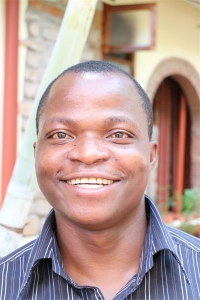 Emmanuel Mbaji Mruu, Kenya
Emmanuel Mbaji Mruu, Kenya
Takkazi
Emmanuel Mruu who was born in Mombasa, lost his parents at a young age. Growing up with his old grandmother, he had to help generating income from age 8, which made him self reliant early in life, however he still suffered from hunger. Once in a while he escaped to the forest. There he ate grass, leaves and fruits, and he became passionate about nature. At age 10 he got back to school and once in college he had to walk through streets that were filled with trash. This opened his eyes to the increasing problem of waste that was polluting the environment.
It was what inspired him to start his organisation Takkazi. His organisation works in the out-skirts of Mombasa, generating employment through waste collection, Segregation and Shredding of hard plastics. The goal is to protect the environment by recycling. The term “WASTE” is changed to RESOURCE. Plastic waste is turned into raw materials that can be used to create new products. Additionally Takkazi is spreading environmental awareness. http://takkazi.org/
Watch the Dream Speech online: here
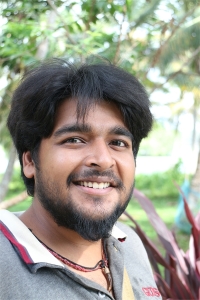 Abhijit Sinha, India
Abhijit Sinha, India
Abhijit is a young social innovator, and the founder of Project DEFY. He has designed many social innovations in India and Africa, including Bodacart – a $500 Ambulance for Africa, a waterless urinal, an accident detection app etc. He believes that high quality education should be accessible to all, and that each person should be capable enough to customize it to their needs and interests. And all that needs to be broken is the fear of making choices. Project DEFY creates “schools without teachers”, as an alternative to the Indian educational system. By creating low-cost rural maker spaces, where people design their own education and choose what they want to learn, we are bringing education to the hands of the people. We have piloted with one such maker space in the outskirts of Bangalore (India). It is run by the rural participants themselves, and thrives with creativity and innovation.
Watch Abhijit's dream speech here
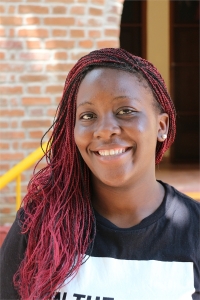 Answer Nzuma, Zimbabwe
Answer Nzuma, Zimbabwe
Turn Tables Africa focuses on children, youth and marginalized communities of Mpumalanga. Education in these slums is low and thus the chances of finding adequate jobs are small. Our “media garage” provides training ranging from social media to journalism and even theatre. The goal is for the marginalized to learn how to tell their life stories. Thus “Turn Tables” might turn challenges of unemployment to an unique chance for developing future writers who report right from reality. Answer has joined Project DEFY in India and Turn Tables, Africa has taken a break as an organization until she moves back to Africa.
Watch the Dream Speech online: here
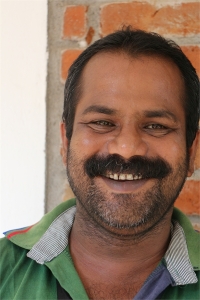 Gouri Shankar Mishra, India
Gouri Shankar Mishra, India
an-anya
In Mayurbhanj, Kandhamal (Phulbani) and Keonjhar (Odisha) 61% children between 10 and 18 are forced to work in average 42 hours per week in roadsides, restaurants, stone crushers and factories. Similarly 51% children have dropped out from 5th standards and engaged themselves as bread earners for their families. an-anya (Unlocking Potential) is a non-profit organization that works against Child Labour and Child Trafficking. Through the use of a child parliament, an-anya creates a child friendly society and a proactive advocacy against violation of their rights. an-anya works in Kotagad, Tumudibandh block of Kandhamal (Phulbani) district, Banspal and Telkoi Block of Keonjhar District and Kaptipada block of Mayurbhanj district of Odisha state specially focusing on child centered advocacy and child related issues. Besides these activities, an-anya runs the 'House of Hope' home for children where 28 rescued children are provided all relevant support to enroll in the regular education system. As on date 389 child clubs and adolescent clubs were formed in these areas. Watch Gouri's Dream Speech here
http://www.an-anya.org
 Gumisayi Bonzo, Zimbabwe
Gumisayi Bonzo, Zimbabwe
Imagine your loved one in the urgent need of medical help, but staying in the rural community, and immediately a bodacart-ambulance, driven by an HIV positive ex-prisoner arrives. HIV positive ex-prisoners are seen as outcasts on death sentence. Our solution: livelihood through assembling bodacart-ambulances in prisons and renting them to HIV positive ex-prisoners. Thus, those who were seen as death sentenced become life saviors. Watch the Dream Speech online: here
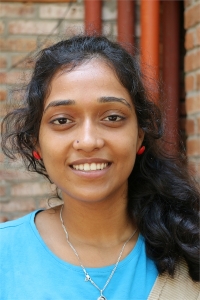 Spandana Cheruvu, India
Spandana Cheruvu, India
I come from a private engineering college in South India which suspended me oppressively to silence my dissent around the issue of Gender Discrimination on the college campus. I fought back to be reinstated and for my right to freedom of thought and expression. My name is Spandana Cheruvu from Makers-On-The-Move, Bangalore. We are a group of young change makers from different backgrounds and fields of expertise who bring solutions to the current socio-economical problems identified in locations across the country. We are mobilizing a change of passive youth in the cycles of following status quo to socially active, critical problem solvers. Watch the Dream Speech online: here
 Robert Burns, USA
Robert Burns, USA
Fish, worms and just enough water, that’s what we need to grow our future organic food in a world where water will be a precious good. “Earth Aquaponics” supports non-profits, blind schools, small rural villages and urban community gardens in developing countries. We provide an Aquaponic fish and worm learning programme for the NGOs’ beneficiaries. Aquaponics is a complete ecosystem which provides thorough understanding of nature and training possibilities to future organic farmers.
 Abdurasak Abdu, Ethiopia
Abdurasak Abdu, Ethiopia
80-90% of employable Persons with disabilities in the developing world are unemployed. With respect to the employed 10%, companies are only employing less than 1%. Consequently, my venture addresses the employment concerns of the disabled. Employability Africa aims to create inclusive corporations to provide equal job opportunities. I envision economically empowered Persons with disabilities, a corporate sector with inclusive employment practices and company managers that are mindful of the business sense of the unique perspectives of the disabled.
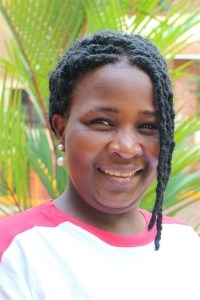 Piloya Mercy Seraphine, Uganda
Piloya Mercy Seraphine, Uganda
Second Thought
The increasing rate of teenage pregnancy in Uganda is one of the most worrying reproductive health challenges and has consequences for the individual girl and for the community. Experts have linked teen age pregnancy with poverty. Mercy's venture Second Thought Uganda joined the fight against teenage pregnancy in 2016 in the northern part of Uganda by
- Providing child protection services to prevent and respond to child abuse, neglect ,exploitation and violence against children which is the major cause of teenage pregnancy
- Providing appropriate sex and related health education.
- Encouraging teenage mothers to go back to school after they deliver their babies.
- Changing the mindset of the society about the importance of teenage girls finishing education.
- Some teenage mothers who can no longer continue with formal education are given a chance to pursue vocational skills.
Second thought Uganda works on awareness creation on teenage pregnancy, child abuse, neglect ,exploitation and violence against children, referral pathways conducted in schools and community with teenage children, community leaders and stakeholders.. Teenage mothers are trained in business skills that is now helping them financially and supporting them to go back to school. Watch Mercy's Dream Speech here
 Yeliza Ramirez, Guatemala
Yeliza Ramirez, Guatemala
In Guatemala close to Honduras border is “La Travesia” a small village which has dry land and the highest rates of bad nutrition. Due the lack of water families migrate to work or sale their children’s in Honduras to have something to eat. My project will involucrate the village to build water sheds and wells, therefore the families will work in their lands to grow food and have incomes. Watch the Dream Speech online: here
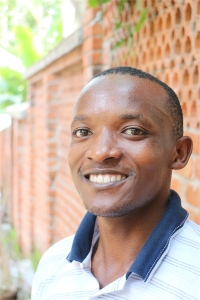 Ampeire Norman Manzi, Rwanda
Ampeire Norman Manzi, Rwanda
During the 1994 Rwandan genocide, thousands of girls and women were sexually abused and gang raped. High percentage of survivors got infected with HIV. Today, one in five young adults is HIV-positive. Despite of this reality, many are stigmatized and marginalized. There are NGOs who care for those who are HIV positive. But my dream is to establish a program that builds their capacity and their confidence to be in charge of their own HIV communities. Watch the Dream Speech online: here
 Malwina Gan, Poland
Malwina Gan, Poland
The World Health Organization estimates that 1 in 4 people will experience mental health challenges in his/her lifetime. And yet it remains a taboo. We aim to break this silence by raising our voices, sharing our powerful stories of struggles and recovery. Let’s start a dialogue and lift the stigma, together!”
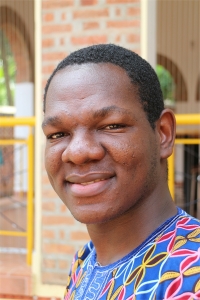 Damilola Fasoranti, Nigeria
Damilola Fasoranti, Nigeria
Prikkle means: “stimulate, inspire, provoke” and this is what we want to do with school drop-outs from Nigeria. People in my country usually give up on children who come from rural areas since they carry the stigma of poverty and are in generally seen as good for nothing.
Prikkle academy believes in their strengths and therefore co-creates with rural youths, it’s a self-sustaining center for creativity, a school without teachers which triggers the talents of rural children and thus provides a hub for future problem solvers. Watch the Dream Speech online: here
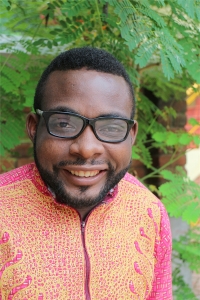 Dennis Akagha, Nigeria
Dennis Akagha, Nigeria
As an EBOLA survivor who suffered rejection from friends, neighbors and people, Dennis experienced what it means to be outcast due to a illness one hasn’t chosen for. This is exactly what people who live with HIV/AIDS and other infectious diseases go through. In his country, Nigeria; they, like him, experience daily stigmatisation and discrimination. Dennis want to see a community where survivors of terminal and infectious diseases, especially people living with HIV/AIDS are embraced by the society, and empowered to lead a fulfilled, productive and hopeful life.
Watch the Dream Speech online: here
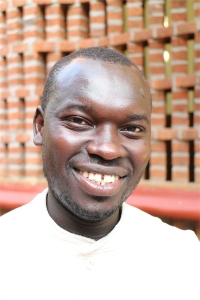 Joseph Tarrit, Kenya
Joseph Tarrit, Kenya
Imagine, you walk through a park and suddenly everyone around you starts dancing to life music. When you go closer you see: The rock stars are kids from 8 to 12. Our team from "Chipukizzi (young Rockstars)" works with alcohol addicted children from marginalized areas in Kenya. Alcohol leads to a high dropout rates among school-children, untimely deaths and illegal activities. We transform these kids through music and joining bands.
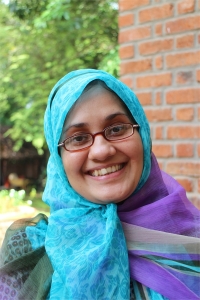 Mahjabeen Baloch, Pakistan
Mahjabeen Baloch, Pakistan
Being a Muslim and experiencing the cultural challenges that occur when one is a product of an interfaith marriage”, made me realize how underdeveloped the world generally is when it comes to inter-religious dialogue. In order to stand up against religious extremism it is important to reform education for young children, youth and adults. To create awareness about world religions, tolerance and intercultural exposure, we offer a newly designed curriculum and training program for Madrassahs and colleges and we will conduct conferences, and media events to start an inter-religious dialogue in Pakistan and beyond. Watch the Dream Speech online: here
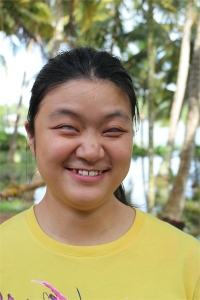 Joanne Shoan Chua, Australia
Joanne Shoan Chua, Australia
This program works with Blind, Disabled, marginalized individuals who often stigmatise themselves and thus exclude themselves from their communities. We believe that the urgency to solve problems and to initiate actions is often triggered in situations outside one’s own comfort zones. Therefore we aim to develop the participant’s self-confidence, problem solving skills and the ability to think critically and to criticize their own behaviour, through skill-training and international internships. Watch the Dream Speech online: here
 David Lubaale, Uganda
David Lubaale, Uganda
There are many marginalized groups in my country that suffer from discrimination and exclusion. People with disabilities, single mothers, lesbians and gays are usually subject of hate, superstitious accusations and even murder. If Disabilities, teenage pregnancies or homosexual Orientation becomes public it normally results into loss of social status, income, education, friends, family connections, and loss of identity. Envisioning a Uganda for all, I want to support these marginalized groups to live free from discrimination, violence, invisibility, and deprivation, by producing enlightening documentary films, building Vocational Institutes and thus creating a society which can be proud of their progress through humanity. Watch the Dream Speech online: here
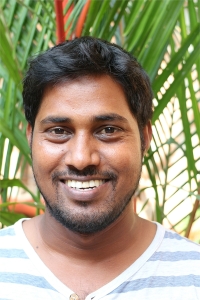 Sundar Sekar, India
Sundar Sekar, India
Farmers and forest protectors are usually not cooperating. Avaram Food Forest, wants to establish a “food forest” that serves as a training centre for those who want to connect organic, sustainable agriculture with environmental protection. In Tamil Nadu, India, most farmers are misinformed and manipulated by industries which promise high yields through use of chemicals and GMO seeds. The food forest will create awareness in the society and will guide these farmers back to traditional farming practices. Watch the Dream Speech online: here
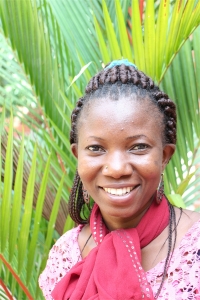 Oluwatimilehin Onafeso, Nigeria
Oluwatimilehin Onafeso, Nigeria
The Nigerian authorities estimate that over 12 million street children walk the streets in Northern Nigeria. A part of my childhood experience is similar to these children; therefore, I founded Spring Africa to empower out-of-school and street children with basic education skills and talent development. The children will share their stories and turn these into different arts: music, paintings, drawing, dance, drama, sculpture etc. They will be supported to unleash their talents and pursue their dreams. Watch the Dream Speech online: here
